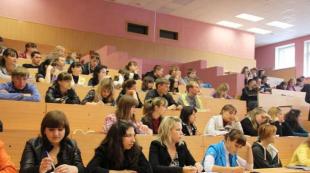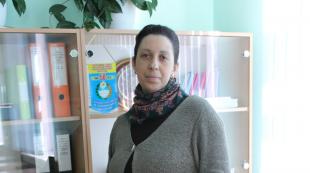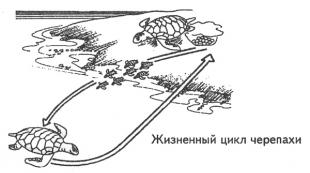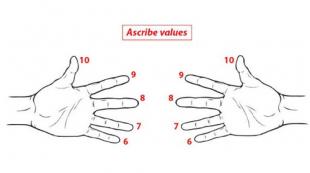A-level in the UK for schoolchildren and students, prices, rating. Preparation for exams in England under the A level program
The A-level is the last stage of education in secondary education in England. A very responsible step and nothing like the system of secondary education in the former Commonwealth countries. MARYADI experts inside the system of secondary education in England. Of course, you can independently study the information posted on the Internet, but it will be much more efficient and faster for you to find out about everything by simply ordering an absolutely free consultation from us.
Free audio seminars
B18. How to choose the right private school in England
Order
B19. Guardianship of minor children in England
Order
IN 20. What to choose A-level or IB
Order
What's happened A Level and where can i get it?
Where can you get a degree A level?
University Preparation Program A Level taught in private schools in England and international colleges created specifically for international students wishing to obtain an A-level degree. Structure and organization of the academic program A-level is unchanged and does not depend on the type of educational institution. However, there are some differences between private schools in England and international colleges that should be taken into account. For example, in private English schools that offer A-level courses the students are mostly British, and a small percentage of international students who study at the school on equal terms with the British from the very beginning of their studies in England. at international colleges that offer A-level courses almost 100% of students are foreigners (not British). In such colleges, in addition to the academic program itself, A level, great emphasis is placed on ensuring that foreign students adapt as painlessly as possible to the conditions of study in England and the socio-cultural characteristics of the country.
What are the entry requirements for A level?
Successful completion of high school (certificate) with grades of at least 4.
How the academic program is organized A Level?
Every A Level consists of 6 modules (subjects) studied in two stages:
Minimum scores for the system A level. For example, AAB, BCC or CCC.
- Minimum points according to the UCAS system. For example, 360, 300 or 280.
If at the time of entering the A-level you do not yet have a specific career aspiration in the direction of your future specialization, then you should try to narrow your circle of interests by excluding A-level subjects that are not good for you and are not interesting.
Many universities give preference to students who come to them with more traditional subjects. A level such as math, history, etc., and may leave non-traditional subjects unattended A level such as dancing, animation, etc.
Employees of our company are fluent in the "science" of the right choice of subjects A level. We provide our clients with completely free consultations on this issue.
What is the difference between the IB program and the A level?
These two programs have both their differences and similarities.
Similarities:
Differences:
Within the framework of the program A Level the student has more freedom in choosing subjects. Unlike A level the IB program has compulsory subjects such as mathematics and science (methodology). Some combinations of subjects in the IB program are not acceptable at all, while in the program A Level may be perfectly acceptable.
Which is better or A Level?
A dispute over which of these two programs is generally better than the other would be completely inappropriate. Both of these programs are fundamentally different and the right choice will depend on the individual preferences, abilities and capabilities of the students themselves.
In 2010 under the program A level 8.3% of all grades received by girls were A* (38098 A*), compared to 7.9% of A* grades earned by boys.
According to the results A level The 2010 academic year saw an increase in total A's earned compared to 2009. This growth was 0.3%.
Such traditional items A level as mathematics and advanced mathematics are becoming more popular among students. In 2010, the number of students who chose mathematics as one of their subjects A level increased by 6.2%, and the number A level in higher mathematics by 11.5%
Most Popular Items A level(Top 5) remain English, Mathematics, Biology, Psychology and History.
The popularity of Spanish as one of the subjects has increased A level by 6.2% and vice versa, the popularity of French fell , as one of the A-level items by 3.4% and German by 3.8%.
| Items A level | Boys % | Girls % |
| Performing / Expressive Arts | 14.5 | 85.5 |
| sociology | 24.7 | 75.3 |
| psychology | 26.9 | 73.1 |
| Art & Design subjects | 27.2 | 72.8 |
| Communication Studies | 28.4 | 71.6 |
| English | 30.1 | 69.9 |
| French | 31.1 | 68.9 |
| Religious Studies | 32 | 68 |
| Drama | 32.1 | 67.9 |
| Spanish | 34.3 | 65.7 |
| critical thinking | 39.8 | 60.2 |
| law | 40.2 | 59.8 |
| German | 40.3 | 59.7 |
| Biology | 43.6 | 56.4 |
| Other Modern Languages | 44 | 56 |
| Classical subjects | 45 | 55 |
| Media/Film/TV Studies | 46 | 54 |
| ALL SUBJECTS | 46.1 | 53.9 |
| General Studies | 46.7 | 53.3 |
| History | 49.3 | 50.7 |
| Chemistry | 52.2 | 47.8 |
| Geography | 54.1 | 45.9 |
| Technology subjects | 56.3 | 43.7 |
| political studies | 57 | 43 |
| business studies | 58.9 | 41.1 |
| Mathematics | 59.4 | 40.6 |
| music | 60.7 | 39.3 |
| ICT | 61.9 | 38.1 |
| Sport/PE Studies | 65.5 | 34.5 |
| economics | 67.3 | 32.7 |
| Mathematics (Further) | 68.1 | 31.9 |
| Physics | 78.5 | 21.5 |
| science subjects | 78.5 | 21.5 |
| Computing | 91.1 | 8.9 |

Name: Alena
University of British Columbia - founded in 1908. Ranked among the top 3 research universities in Canada and the top 20 public universities in the world by The Times. Its alumni include seven Nobel Prize winners.

Name: Vika

Name: Lena
King's College London is the oldest research university in the UK, founded in 1829 by decree of King George IV. It ranks 7th among European universities in the ranking compiled by The Times newspaper.

Name: Kamran
Queen Mary University of London is one of the largest and most prestigious universities in the UK, founded in 1785. In the international QS World University Rankings, the university ranks 115th. Included in the Top 10 medical universities.

Name: Lisa
Durham University - founded in 1832. It is considered the third oldest university in England. In terms of prestige, it ranks third in the UK after Cambridge and Oxford.

Name: George
University of Warwick - founded in 1965. In 2015, the University of Warwick celebrated its 50th anniversary. The University of Warwick was named UK University of the Year 2015. Since 2015, the University of Warwick has been ranked in the top 100 in three global university rankings.

Name: Daria
Architectural Association (School of Architecture) - founded in 1847. Over the years, this university has graduated from such eminent architects as Zaha Hadid, Rem Koolhaas, Richard Rogers and Daniel Libeskind.

Name: Xenia
UCL (University College London) is the oldest university in London. In the World University Rankings, UCL is ranked second in Europe and fourth in the world.

Name: Alexander
Oxford University is one of the oldest universities in the world and the first of the "old universities" in the UK. In The World University Ranking 2016 and 2017 ranked first in the world.

Name: Vitaly
University of Surrey - founded in 1891. The university has achieved the highest international recognition for scientific research - both in basic and applied sciences. Included in the top 10 British universities according to The Guardian.
In the last 2 years of pre-university education, English students usually take an "advanced level" course, the so-called GCE Advanced Level or A-levels for short. In the first year, students study 4 chosen subjects, in the second year only 3 remain. Most A-Levels programs last two years, although some schools and colleges, including, have accelerated programs that take from 1 to 1.5 years.
Students can complete the A-levels program both in a private school and in a public one. When choosing a place to pass the program, you should take an interest in the statistics of academic performance and admission of graduates to universities. In addition, some expert organizations, such as the Financial Times, rank schools. As a rule, the first lines of such ratings are private schools. It is believed that graduates of private schools have a greater chance of admission due to the higher quality of education and exam results. However, many public schools with a more modest status give their students an excellent education and excellent chances of getting into top universities.
Alternatives to the A-levels program can be the International Baccalaureate (IB), Cambridge Pre-U Diploma (Pre-U), as well as the Foundation program.
Entry requirements for A-levels programs
To enroll in the A-levels program, the applicant must be at least 16 years old, and he must speak English at a level not lower than the average ( IELTS 5.0). Preparation of documents should be started at least a year before admission. Some schools will require only high grades from the school at home or they will offer to pass tests in the main disciplines.
There are private schools that do not accept foreign students at all, there are schools that accept applications for 2 years.
International Baccalaureate (IB)
The IB program is an international program, unlike the exclusively British A-levels. It is considered to be broader, as it involves the study of 6 subjects and the writing of term papers. The program is offered primarily by private schools and has several elitist character.
On the territory of the CIS there are 23 schools accredited by the International Baccalaureate Organization. Among them are 18 Russian (not only in Moscow and St. Petersburg, but also in Samara, Krasnoyarsk, Perm and Vladivostok), 6 schools in the Republic of Kazakhstan, 3 schools in the Republic of Azerbaijan, 1 school in the Republic of Armenia. The list can be found on the official website of the International Baccalaureate.
This material is useful to everyone who enters the "sixth form" (6th Form) in a private school in England. Recall that the 6th form is a two-year pre-university training program for children aged 16 to 18. In other words, these are the last two years of study (12th and 13th year) at school before entering the university.
In this article, we pursue the following goal: to explain to parents and their children what is the main difference between the A-Level and IB programs. Which program to choose A-Level or IB and why.
Let's start by reviewing each program.
A Level
The A-Level program has long served as the "standard" of pre-university preparation and British school education. In order to get into this program, English students had to complete the GCSE program (13-15) and pass a lot of exams (from 9 to 12) in various subjects without fail.
At the A-Level itself, schoolchildren are offered several disciplines to study (from 4 subjects), which children must choose with the expectation of a future profession and a specific direction of further education at the university (specialization or course / faculty). For example, children who are inclined towards exact and natural sciences can only study physics, mathematics, biology and chemistry. Children prone to the humanities can learn languages (English, French, Russian, Spanish, etc.). Or, children who are interested in an economics major should study math, economics, politics, and English.
It is worth noting that this specificity of the course differs markedly, for example, from the Russian program from grades 10 to 11, where children study more than 4 disciplines and, one might say, "disperse" into subjects they do not need. The purpose of A-Level is to give children the opportunity to study the chosen subjects in more depth, since it is only a narrow specialization (4 subjects). And, on the one hand, this should be a certain advantage when entering a university (narrow and specific specialization). But, on the other hand, over the past few years, this program has been criticized by many. This is due to its relative simplicity and at the same time with excessive "specialization" (children may not study subjects important for later life: give up mathematics or English, or natural sciences). Still, children should receive the most "versatile" education at school and in no case should they refuse (as A-Level allows) from specific disciplines. And all because such objects allow you to develop intellectually. And if, for example, at the age of 16 you refuse to study mathematics (even at the standard level), then, alas, this may entail the loss of future career opportunities.
On the other hand, the number of subjects that can be studied at the A-Level is not limited. Therefore, a student can always combine in the program the subjects necessary for intellectual development and for admission to a university.
Private schools in England generally recommend making a balanced choice of subjects on the A-Level program. In the first year (it is called AS), children are recommended to take 4 subjects. Pass exams at the end of the year (usually the exam session begins in mid / end of May), get the results in August and then decide which subjects to study in the second year. In the second year (it is called A2), private schools recommend leaving only 3 subjects that will be studied further and in which the child showed the best (usually) results (or which are easy for the child). At the end of the second year, the student takes exams in the subjects of the second part, the grades are combined (together with the first year) and the total score for each discipline is displayed.
It is worth noting that children submit results for the first year of study (AS) to the university (through UCAS), on the basis of which the school puts predicted grades.
It happens that some schoolchildren study 4 or (sometimes) even 5 subjects in two years. This can be very difficult for some children, so this can be regarded as somewhat of an exception.
Useful:
- Mathematics A-Level - all modules: Core, Mechanics, Statistics and others. Individual lessons with a tutor, aimed at the maximum result. Average grade A.
- Chemistry A-Level: classes with a professional tutor in chemistry in English. Detailed knowledge of all Edexcel exam boards, AQA, OCR and AS/A-Level chemistry nuances.
IB (International Baccalaureate)
IB or International Baccalaureate similarly, A-Level is also a two-year pre-university preparation program. Over the past decades, the program has competed very strongly with the A-Level and may someday even supplant the A-Level. In private English schools, the International Baccalaureate (IB) program is considered a full-fledged program for Form 6. Moreover, children with an IB diploma are admitted to British universities and colleges.
The IB Diploma program is a very meaningful alternative to the A-Level, and all because it is built on completely different principles. The system is based on a set of international ethical values that permeate all elements of the program (disciplines, teaching methods, curricula and approaches).
The IB program involves the study of 6 subjects from 6 different thematic groups: foreign languages, humanities, natural sciences, mathematics, art and native language. Instead of art (Arts), you can choose another item from another group. Due to the fact that subjects are recruited from various thematic groups, this allows you to get good intellectual development and significantly broaden your horizons. An important addition is the fact that 3 subjects are studied at an advanced level of difficulty and 3 at a standard one.
In addition to 6 academic subjects in IB, there is also a mandatory study of the basic program (Core). Core is 3 additional "courses":
- Writing a course (research) work (essay) on the chosen topic. Essay length - 4000 words.
- Study the theory of knowledge course (Theory of Knowleadge or TOK) - a course on "how to learn" (the mechanism for obtaining new knowledge and analyzing it).
- CAS = Creativity, Action and Service (Creativity, Action and Service) - a course in order to make the student active.
Thus, children at IB will have to study 6 subjects (3 at the Higher level, 3 at the Standard level) and 3 courses (TOK, CAS, Extended Essay). The maximum number of points that a student can receive is 45 points (42 for 6 subjects) and 3 for Core. The maximum score for one subject is 7 points. Exams for IB are held at the end of training (at the end of year 13). But children apply to the university based on the results of their studies at school (for 1 year) and Mock exams (preliminary exams held at the school on the examination sheets of previous years). Mocks are also written at the end of the first year. Based on these results, the school puts predicted grades (the expected grade that the student will receive), a total score is displayed and entered into the application for UCAS.
Why do we need an advanced level in schools in England? The fact is that in the UK students study according to the secondary education program - General Certificate of Secondary Education (GCSE) ) from fourteen to sixteen years of age. In fact, from this moment on, students can consider their basic education completed. It is enough to work as a driver, a factory worker, perform the simplest functions of a social worker, etc. However, those students who, after leaving school in England, would like tocontinue their studies at a UK universitytake a two year course Advance Level (Advanced level),which, in fact, is preparatory foruniversity. At this stage, the student determines whichspecialty he would like to study at the university, anddeeply studies in the first year ( AS-Level ) four items, and on second (A - Level ), usually 3 items. There are alsoexceptions. For example, for admission to medicalspecialty and in the second year they study 4 subjects. Foreconomic specialties at the university are chosen,usually history, economics, foreign language,mathematics, for natural science - physics, chemistry, mathematics,history, for medicine -biology, chemistry, mathematics,literature, history, etc.
The choice of subjects is the key to successful admission to the university. There are subjects that are indicators of the overall intellectual development of the student. Such as mathematics, higher mathematics, history, foreign language. Therefore, if a student, for example, wants to get a law degree, the choice of mathematics and higher mathematics is a good one, since mathematics is a subject that objectively reflects the student's level of achievement.
Additional subjects are selected based on the specialty of the student. These are usually general subjects - literature, economics, history, etc. Schools in England offer up to 45 subjects A-Level from which the student can choose the most suitable for him.
Requirements for admission to A-Level.
- Age 16;
- Proficiency in English (preferably at least 6.0 IELTS);
- Average score of the certificate of secondary education GPA (Grade Point Average) ) is approximately 3.0 on the British scale.
We pay attention that if a student is 16 years old, then theoretically, one can be accepted to A-Level , even if there is no secondary education in Russia or the UK, and even an official English test. Everything depends on the position of the school, its interest in the student, his prospects, etc.








